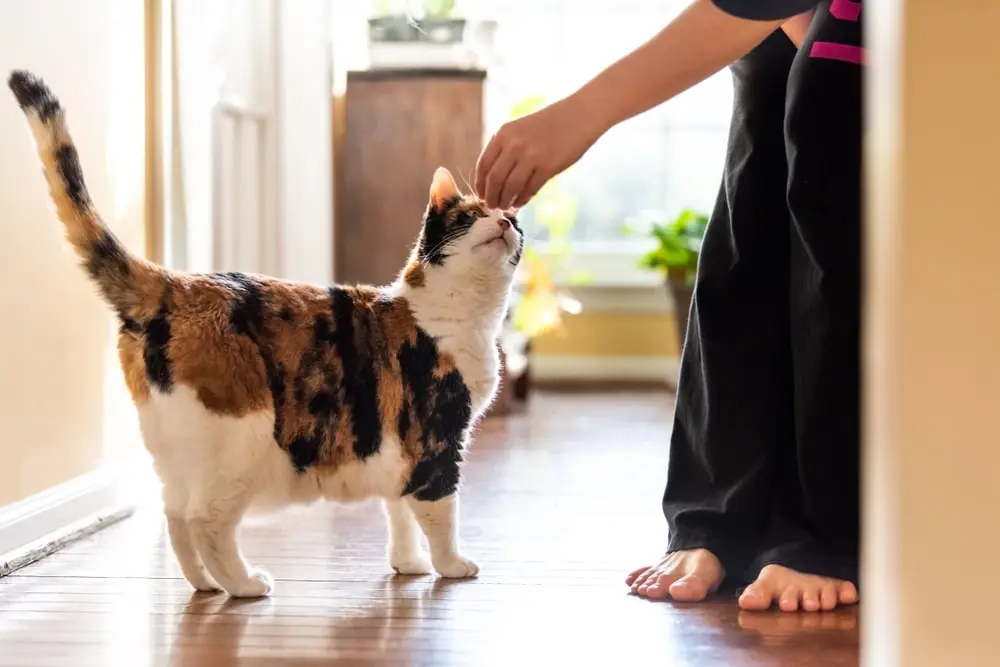PET HEALTH
Can Cats Get Dementia? Facts, Signs, & Symptoms
Yes, cats can get dementia. Cats can live a very long time, and like humans, their minds may begin to decline. A senile cat’s behavior can range from mild to downright scary, but it’s a manageable disorder. Let’s discuss the facts about cats with dementia, its signs, how to care for cats with dementia, and how pet insurance can help.
What Is Cat Dementia?
Due to improvements in veterinary care and nutrition, cats are living much longer than they did in the past. Today, it’s fairly common for feline companions to live into their 20s, which is roughly 90 – 100 human years!
But just like humans, cats need special care as their physical and mental health declines in their senior years. Some cats develop what’s called feline cognitive dysfunction syndrome (CDS).¹ Simply called cat dementia, this syndrome usually starts in cats 10 years or older who have some other risk factors.¹
Signs of dementia in cats
Dementia in cats doesn’t look the same for every senior feline. Some might show symptoms that seem like “grumpy” cat behavior, such as ignoring you when you come home. Other cats may act erratically, like walking in circles or staring at a corner for several minutes.
Other symptoms of dementia in cats to look out for are:¹,²
- Disorientation
- Disinterest in playing with pet parents
- Sleep-wake cycle changes
- Accidents outside the litterbox
- Howling in the middle of the night
- Irritability
- Excessive licking
- Anxiety
- Confusion
Don’t ignore any of these symptoms. Speak with your veterinarian about changes in your cat’s behavior as soon as possible.
Risks factors for dementia in cats
Cats with pre-existing conditions can be more likely to develop dementia. Some of the side effects of certain illnesses, or the medications used to treat them, can lead to cognitive decline in cats.¹,² Other risk factors for dementia can be poor diet, genetics, and deformities in the brain.¹,²
Pet parents should be aware that most of these conditions are age-related and aren’t their fault. Things like arthritis and kidney disease are normal parts of a cat’s aging process. Luckily, these conditions can be managed.
Treatments for Cat Dementia
Right now, there’s no cure for dementia in cats. But vets can help pet parents manage their cat’s aging through a combination of therapies. For example, arthritic cats may be treated with chiropractic care and supplements that manage pain and improve brain function.
Talk with your vet about what’s best for your cat, including prescription diets for senior cats. They may be able to suggest supplements or commercial diets that contain vital nutrients and minerals your cat needs. Ingredients that are known to improve brain function in cats can include:¹,²
- Omega-3
- Vitamins B, C, and E
- Arginine (an amino acid that helps the body build protein)
- Flavonoids (an anti-inflammatory compound)
- Vitamin A or “carotenoids” (can support immune function)
- Phosphatidylserine (an amino acid that’s found in the brain)
In addition to these vitamins, your vet may prescribe anti-anxiety medications — like fluoxetine — to help your cat relax. There aren’t any drugs approved specifically to improve brain function in cats (unlike dogs with dementia), but there may be in the future. Speak to your vet about any clinical trials in your area.
How to care for cats with dementia
One of the most important things pet parents can do is keep their senior cat’s daily routine as normal as possible. Try your best to minimize stress, which can cause symptoms of anxiety — like confusion and howling — to worsen. Play with your cat often, even if they can’t jump or chase like they used to. It’s critical to keep their minds engaged.
If your cat is having trouble moving around, invest in ramps to help them get on and off the furniture. Switch to low-side litterboxes or add ramps to make going to the bathroom easier.
Lastly, follow your vet’s instructions carefully. Addressing your cat’s underlying conditions is the best way to manage their dementia. Keep track of what medications they’re taking and when. Note any changes in behavior or health that indicate your pet’s medications need to be changed.
Your Cat Needs Care. MetLife Pet Can Help
If you have a senior cat, you know what it takes to keep them healthy — and how much it costs. A cat insurance policy could help you save on treatments for your senior kitty’s age-related conditions and treatments for cat dementia.3
Fortunately, MetLife Pet Insurance doesn’t have age limits for our pets. We allow multiple pets on one policy — meaning all your family pets’ care counts toward one deductible. Get started today with a free quote from MetLife Pet Insurance, winner of the “Pet Insurance of the Year” Award in the 2024 Pet Independent Innovation Awards Program.4


